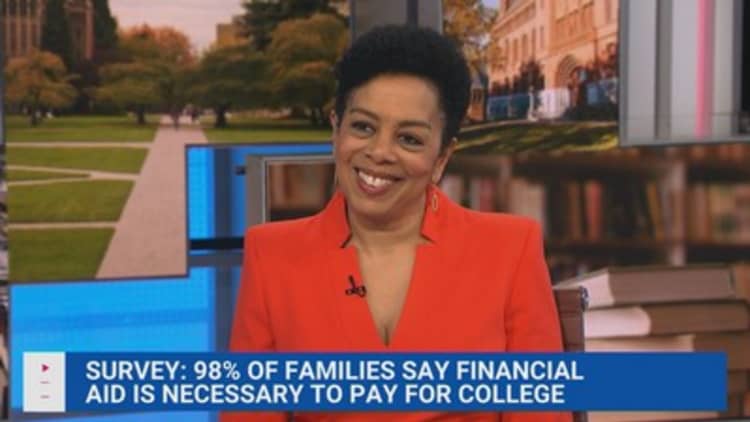
For the first time in over a decade, more students are choosing to go to college.
Undergraduate enrollment rose 1.2% in the fall of 2023 compared with one year earlier — a gain of roughly 176,000 students, according to the National Student Clearinghouse’s latest research.
“The number of students in college has finally turned the corner after years of decline,” said Doug Shapiro, executive director of the National Student Clearinghouse Research Center.
“The small uptick this fall is a welcome change for higher education,” he said.
However, in the years since the Covid pandemic began, there are still more than 1 million fewer students enrolled in college compared with pre-pandemic times.
More from Personal Finance:
Now hiring: ‘New-collar’ workers, no degree necessary
Gen Z says they have it harder than their parents did
Biden administration forgives $4.9 billion in student debt
Further, this fall’s increase was largely driven by the number of associate and certificate degree seekers, Shapiro noted.
“That’s aligned with a significant theme,” he said.
“Students have been increasingly opting for shorter term degrees and more vocational programs and vocational certificates,” he added — at the expense of a four-year degree.
Concerns over rising costs and large student loan balances are causing more young adults to reconsider their plans for after high school, other reports also show.
Would-be college students are looking more closely at the return on investment as tuition costs remain high and a shortage of workers increases opportunities in the labor force — with or without a diploma, according to Eric Greenberg, president of Greenberg Educational Group, a New York-based consulting firm.
“We have more families asking about pre-professional programs,” Greenberg said. “They’re more value-conscious.”
Getting a college degree still pays
For decades, research found that earning a college degree is almost always worthwhile.
Bachelor’s degree holders generally earn 75% more than those with just a high school diploma, according to “The College Payoff,” a report from the Georgetown University Center on Education and the Workforce — and the higher the level of educational attainment, the larger the payoff.
Finishing college puts workers on track to earn a median of $2.8 million over their careers, compared with $1.6 million if they only had a high school diploma, the report found.
In some ways, the student loan crisis and challenging job markets have overshadowed higher education’s proven success, said Liz Cheron, CEO of the Coalition for College, which aims to promote college access.
“You can go to college and graduate on time and have low to no debt and have fantastic outcomes as a result of that,” she said.
While some companies and industries are more open to hiring “new-collar” workers with specialized skills and no degree, over time, occupations as a whole are steadily requiring more education, according to another recent report by Georgetown’s Center on Education and the Workforce.
And the fastest-growing industries, such as computer and data processing, still require workers with disproportionately high education levels compared with industries that have not grown as quickly.
In 1983, only 28% of jobs required any postsecondary education and training beyond high school. By 2021, that had jumped to 68%, the report also found. In another decade, it will climb to 72%.
Don’t miss these stories from CNBC PRO:

